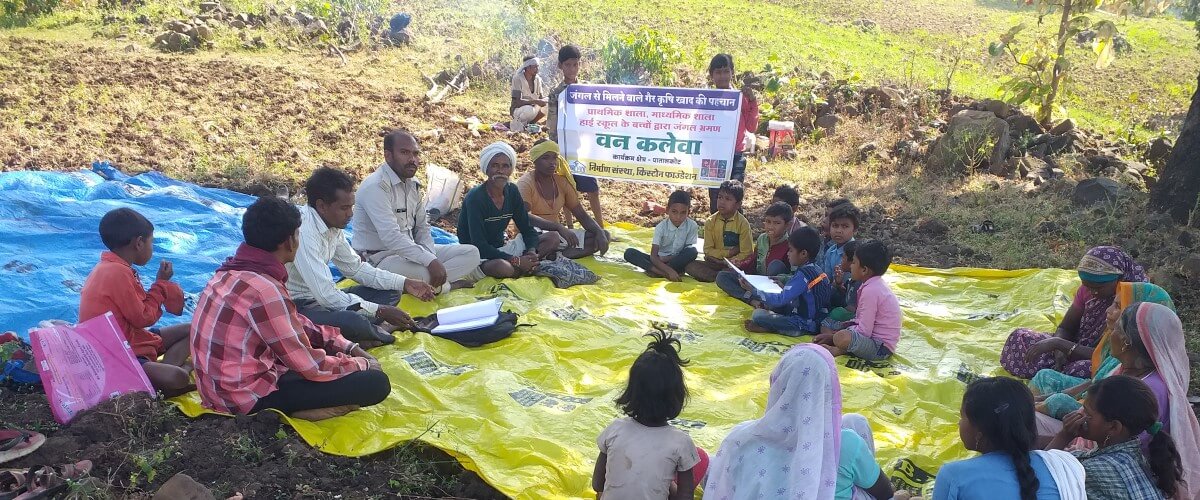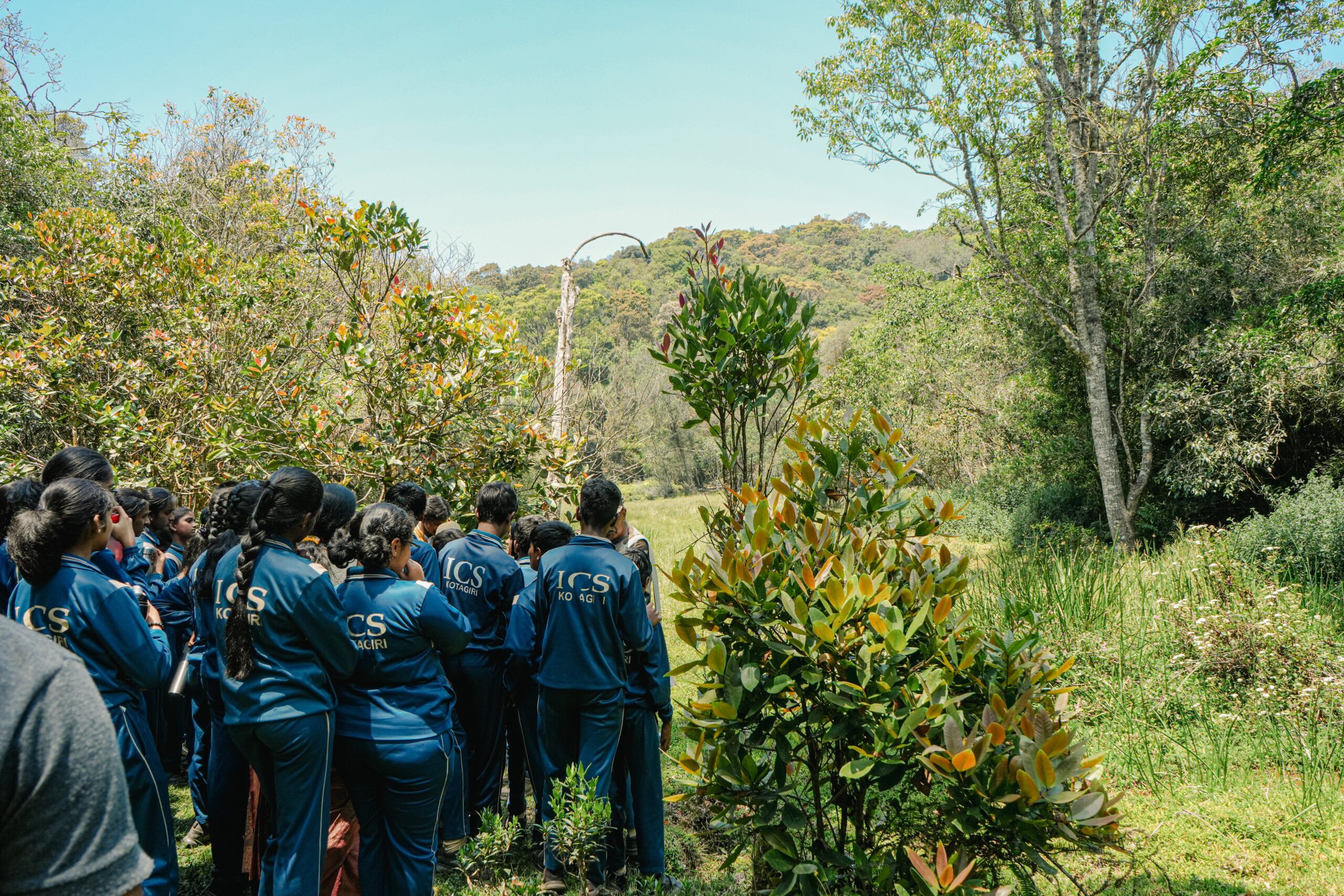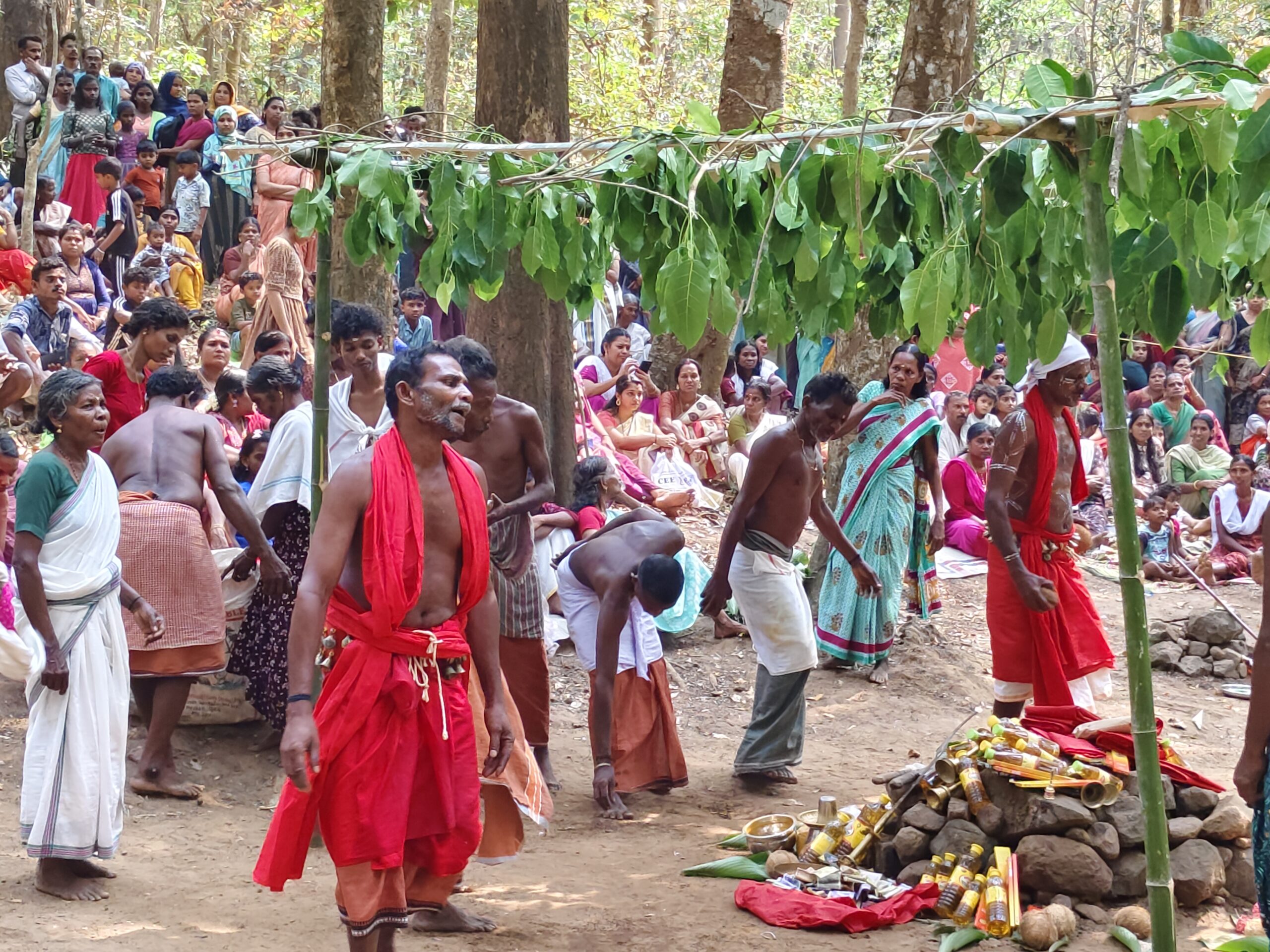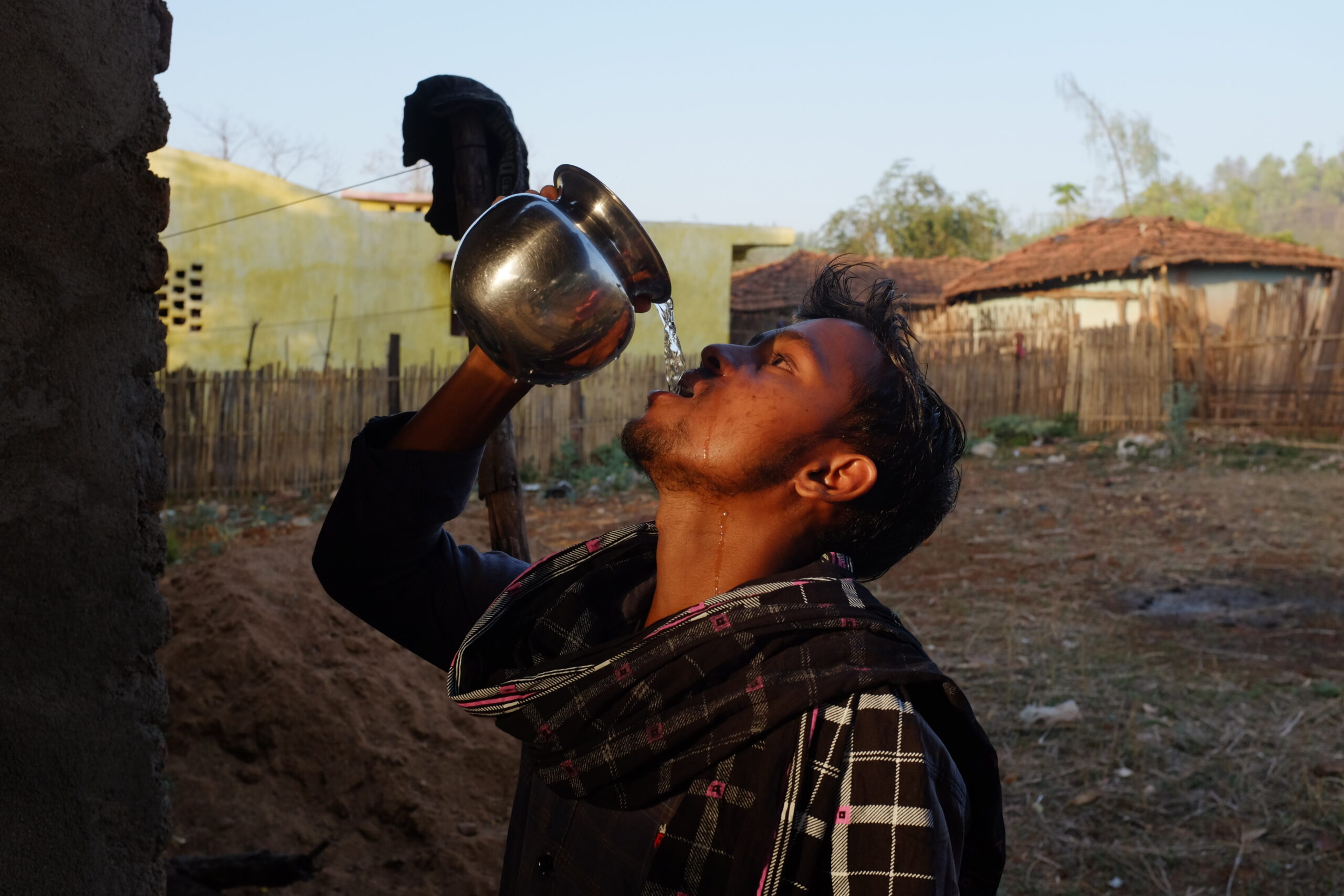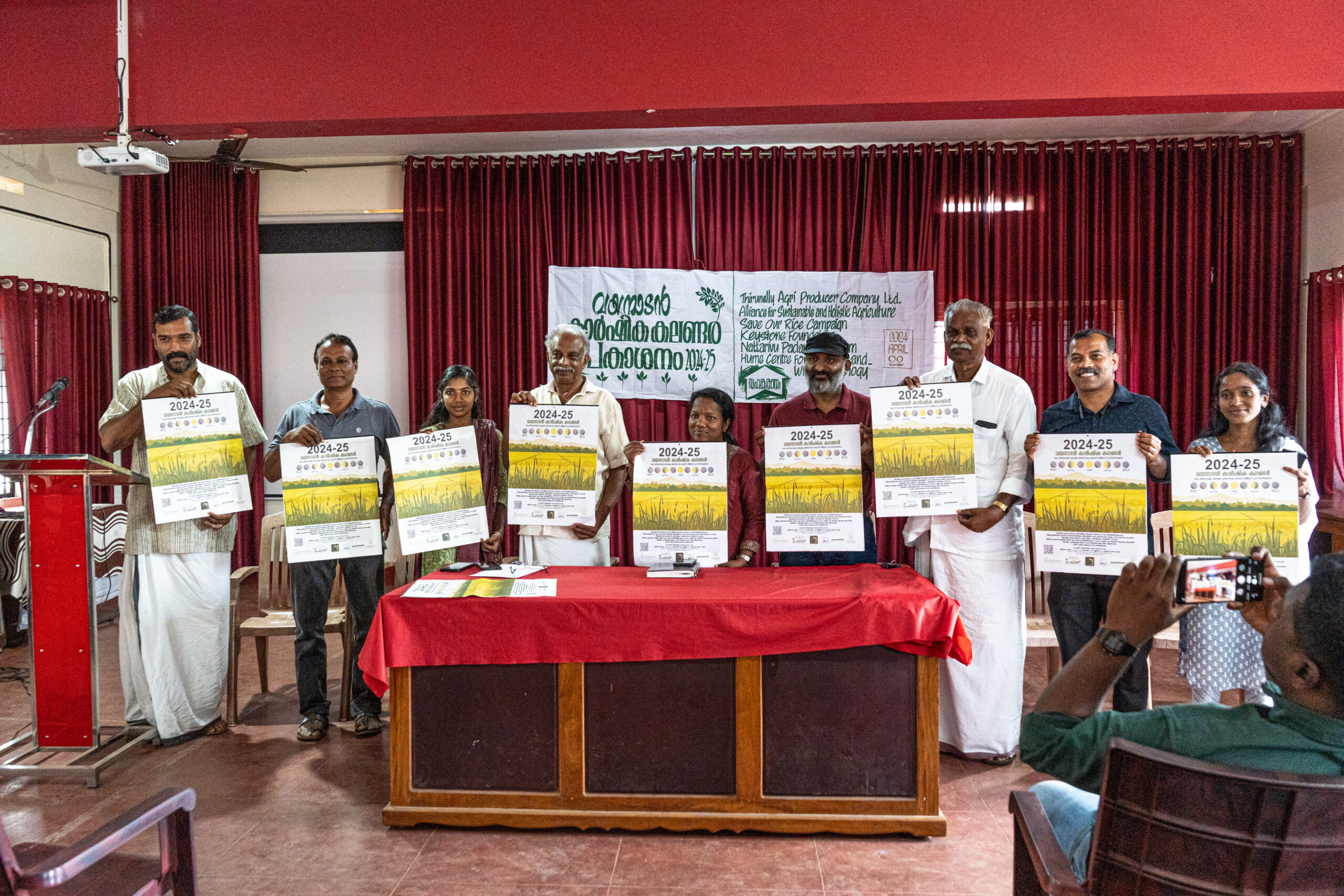November 6, 2022
By Rohan Mukerjee, Laxman Ahkey & Gyansa Bharti
Programme Coordinator – Networks & Alliances, and Using Diversity Fellows
In Chhindwara, Madhya Pradesh’s largest district, our Networks and Alliances programme is working tirelessly to preserve rapidly disappearing native crops and traditional agricultural methods. This is a challenging goal for the programme, given the complex web of causes and impacts involved in the agriculture industry here.
Through the Using Diversity Network, founded by Keystone over 25 years ago to promote traditional seeds, knowledge and methods of agriculture, an awareness activity was organised in Jhiran village of the Harrakachar panchayat in Tamia Block. The activity highlighted traditional seeds, agricultural practices and wild, uncultivated foods. Around 34 participants attended, including seven women, 11 men and 16 children.
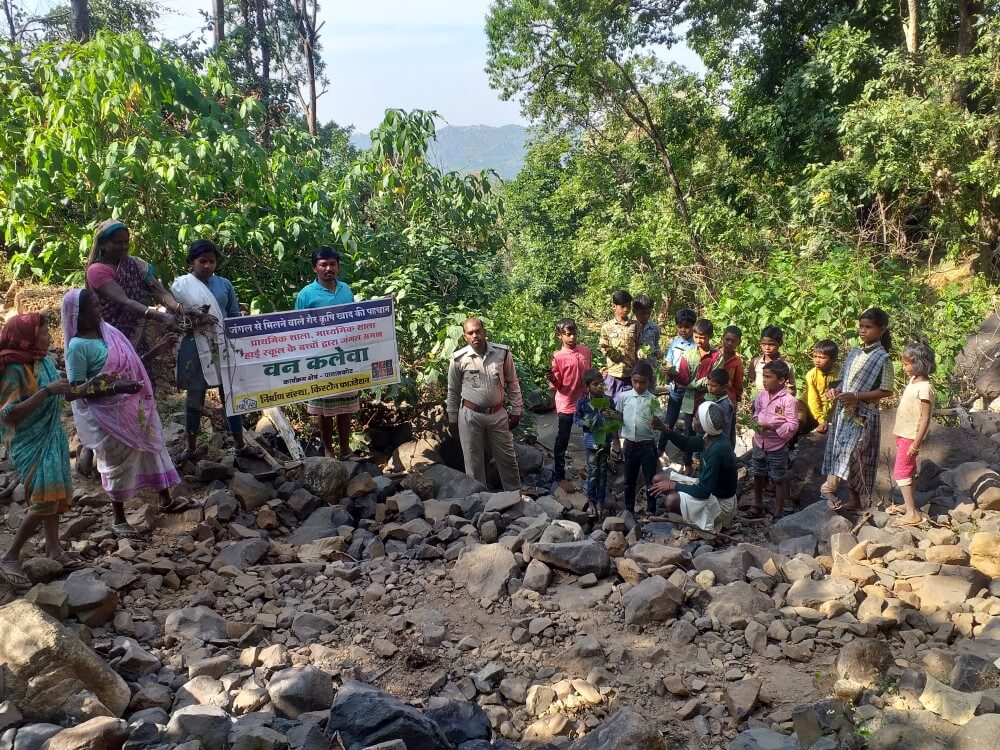
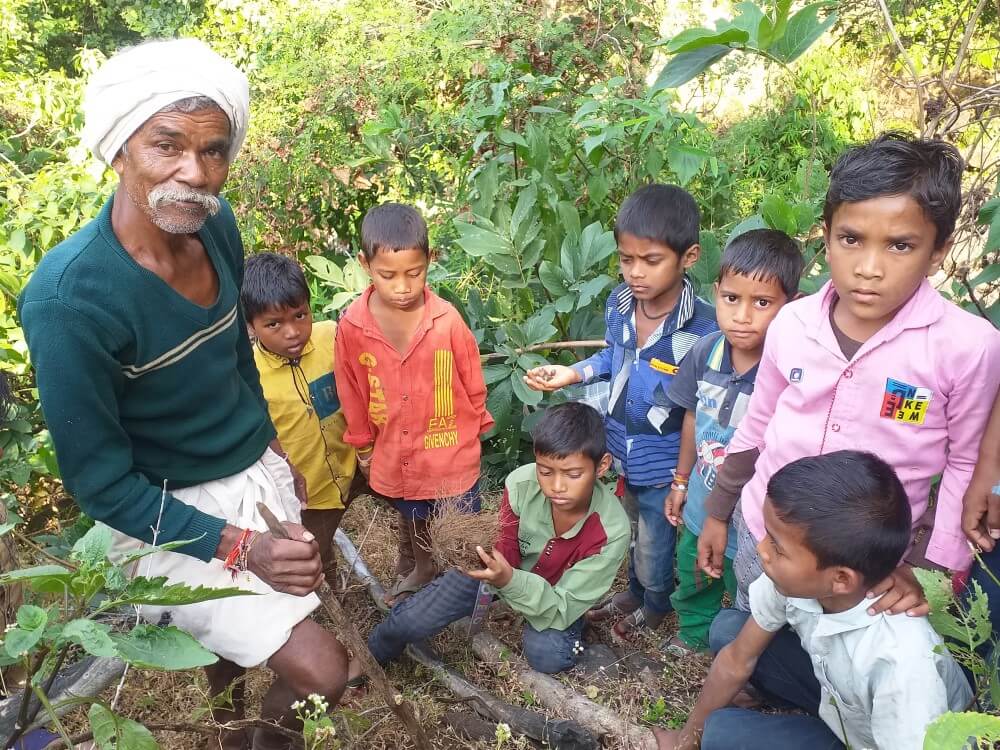
The activity was chaired by Mehrsi Patel, a village elder from Khamarpur village. Mehrsi is an experienced Bhariya farmer who is currently reviving the cultivation of traditional crops like Madia (finger millet) and Kangi (a variety of foxtail millet) in his land. Mehrsi spoke to the participants about the benefits of traditional crops and the urgent need to revive and safeguard traditional agricultural practices. He also shared his wealth of knowledge about wild and uncultivated foods of the region, including tubers like Kadu Kanda, Bechandi Kanda, Shahad Kanda, Donchi Kanda, Ratedh Kanda, and Ram Kanda; greens like Dobai bhaji and Bhodki bhaji, Amla, and fruits like Mahol phal. Mehrsi then took the men, women and children on a forest trail on which he helped identify a variety of uncultivated food trees and plants, and also shared insights on their use and consumption.
The activity was well received by the villagers, who engaged enthusiastically and requested that more such activities should continue to be held. They lauded the efforts made to involve children in the rich exchange of traditional knowledge. Mahendra Uike, a Forest Department beat officer, mentioned that this was the first time he was attending such an event in an remote location like Jhiran village. He was enthusiastic about sharing his documentation of the activity with the local Forest Department staff, who were intrigued and promised to attend such events in the future.

